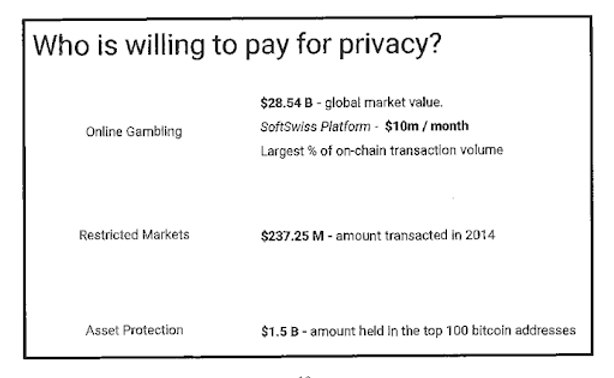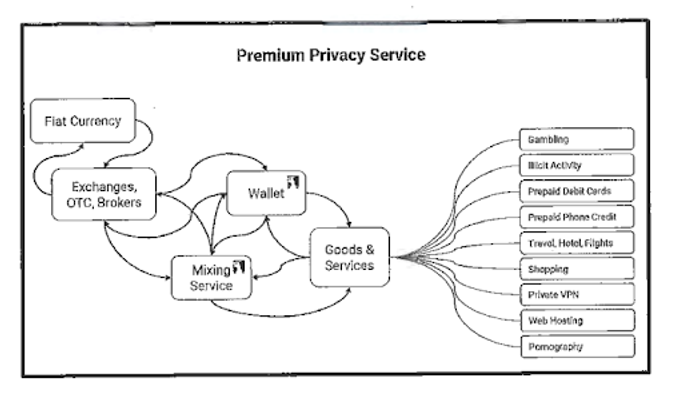In late July 2025, a defining moment hit the crypto privacy space. William Lonergan Hill and Keonne Rodriguez, the founders of Samourai Wallet, a non-custodial Bitcoin wallet known for its privacy features, pleaded guilty to operating an unlicensed money transmitting business. This wasn’t just about a coin mixer , it was about how the wallet’s architecture and operations were allegedly designed to facilitate anonymous transactions at scale, while bypassing regulatory licensing obligations.
Their plea, part of a deal with U.S. prosecutors, underscores a broader crackdown not just on mixers, but on privacy-focused crypto infrastructure when built and promoted in ways that intentionally evade oversight.

What made the Samourai Case different?
- Samourai Wallet was non-custodial: it didn’t hold user funds.
- It included advanced privacy tools like Whirlpool (a CoinJoin implementation) and Ricochet (a transaction delay tool).Enabling darknet market actors, fraudsters, and hackers to conceal illicit funds. The defendants promoted their services to criminal users and earned millions in fees.
- Prosecutors said the founders were fully aware that the wallet’s features were used to hide the origin of illicit funds - and built the product around that use case.
- They also cited marketing language and operational decisions that suggested the team was deliberately aiding anonymous financial flows without being licensed to transmit money.
- From 2015 to 2024, Samourai processed more than 80,000 BTC through privacy. features.

In short: it wasn’t just the tool. It was how it was operated, promoted, and supported.
The plea deal drops more serious conspiracy charges but includes up to 5 years in prison and a $237 million forfeiture.


A screenshot from Nominis Vue
A Broader Pattern: From Tornado Cash to Samourai
Samourai is not an isolated case. In 2022, U.S. authorities sanctioned Tornado Cash, a prominent Ethereum mixer, for allegedly enabling North Korean hackers to launder stolen crypto. Tornado’s developers, like Samourai’s, now face criminal charges, despite their tools being open-source and permissionless.
The legal trend is clear: regulators are no longer only targeting bad actors who use these tools, but also the developers and operators who build and maintain them.
Privacy or Crimeware?
Supporters of crypto privacy argue that mixers are akin to encryption , vital tools for individual security, not criminal enterprise. Just as we don’t criminalize developers of VPNs or encrypted messaging apps when bad actors misuse them, the same logic, they say, should apply to privacy-preserving crypto software.
However, regulators view the issue through the lens of traceability and financial integrity. If a tool makes it nearly impossible to trace transactions, and is marketed with slogans like “launder like a pro” (as prosecutors claimed in Samourai’s case) , then authorities see it as crossing a legal line.



Final Thoughts
The guilty plea from Samourai Wallet’s founders isn’t just a legal headline, it’s a statement. Privacy in crypto is no longer a gray zone; it’s a battleground. As authorities push for visibility in a decentralized world, the challenge remains: how to balance transparency, security, and individual freedom in the digital age.
Samourai Wallet Crime Case: FAQs
Q: Are mixers illegal?
No, mixers themselves are not illegal. However, they become a legal concern when used to launder proceeds of crime, or when operated without proper licenses in jurisdictions that regulate money transmission.
Q: Why do people use mixers?
Mixers are used for privacy , to prevent surveillance, protect personal financial data, or hide wallet balances. But they are also used by criminals to conceal illicit funds, which draws attention from regulators and law enforcement.
How do mixers work?
Mixers collect crypto from multiple users, shuffle the coins, and return them , often with time delays and in different amounts, making it harder to trace the flow.
While we strive for accuracy in our content, we acknowledge that errors may occur. If you find any mistakes, please reach out to us at contact@nominis.io Your feedback is appreciated!



.jpg)


.png)